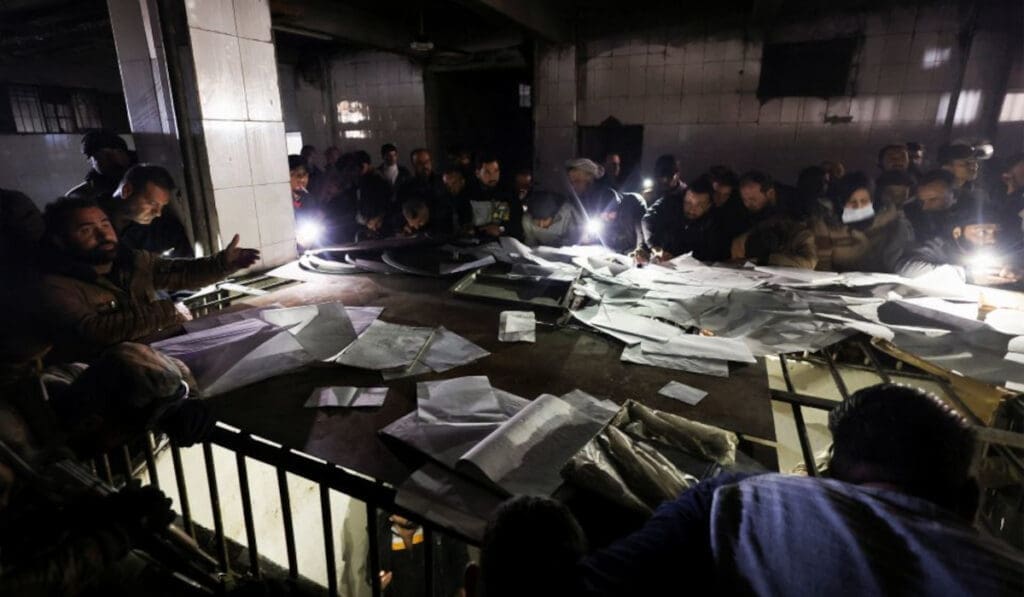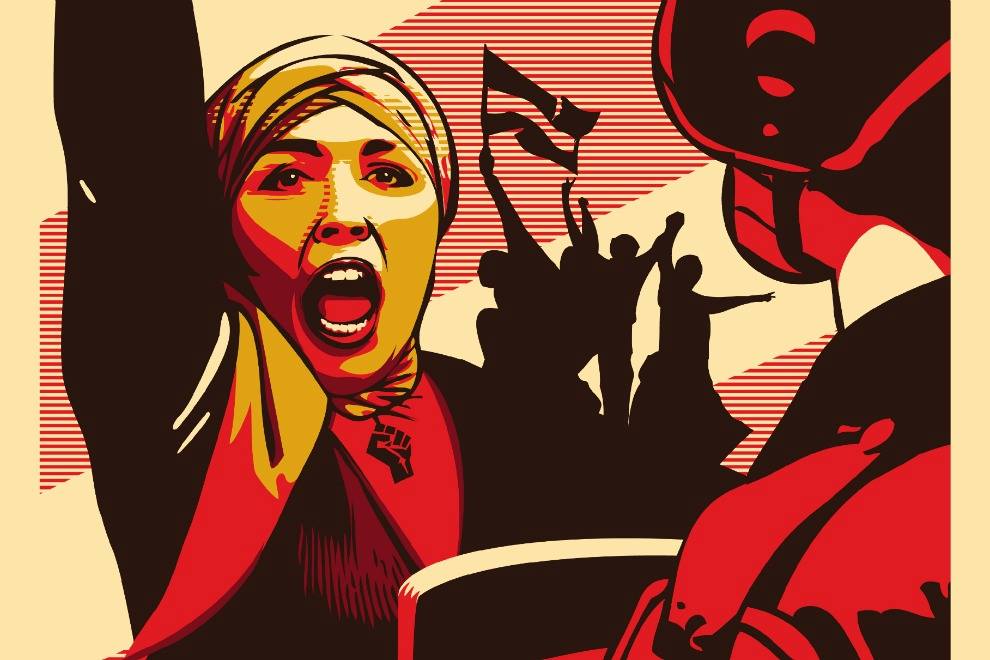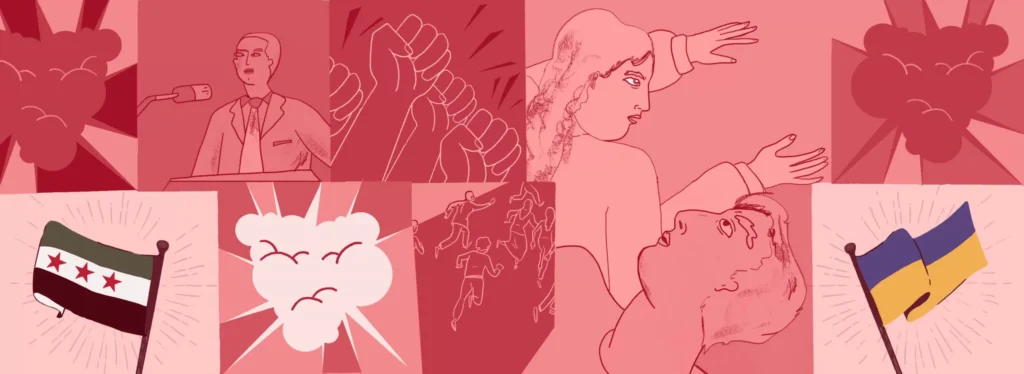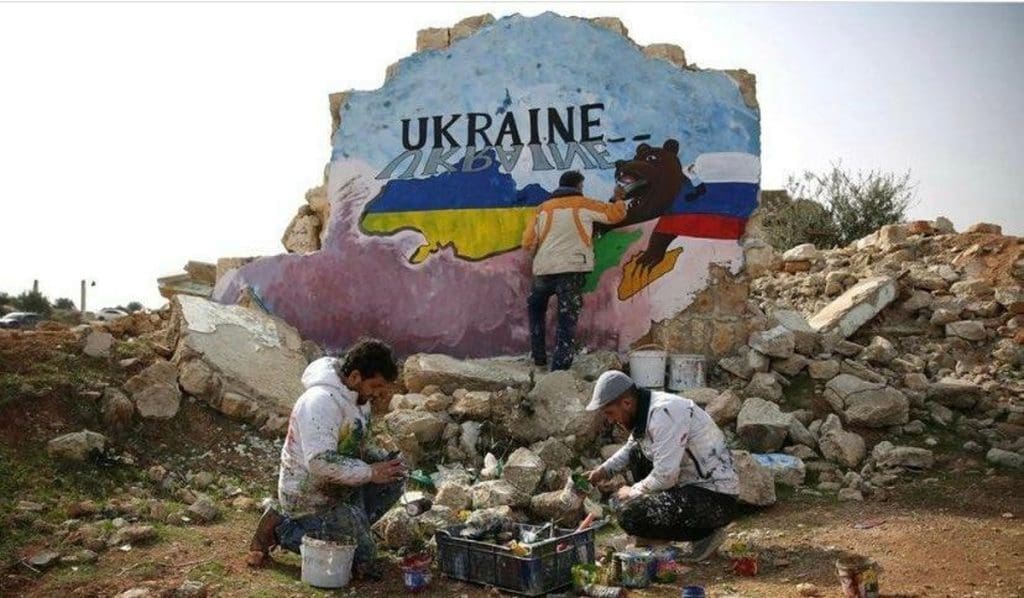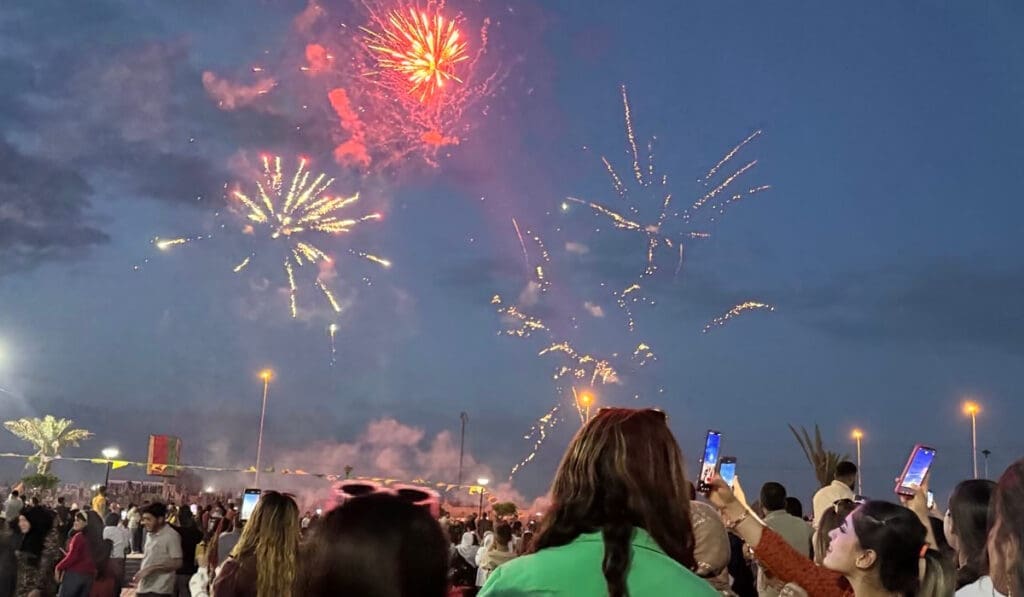“…until Syria is a democracy!”
Interview with Anwar al-Bunni
by Anna Jikhareva and Merièm Strupler for Die Wochenzeitung (Switzerland)
12 December 2024 (original post in German)
Anwar al-Bunni advocated for political prisoners in Syria, was himself imprisoned, and ultimately fled abroad. A conversation about the notorious Sednaya prison as a symbol of the Assad regime, and the struggle for justice for its victims.
Wochenzeitung: Anwar al-Bunni, as of this weekend the Assad clan’s dictatorship is over, after more than fifty years. What has been going through your head the past few days?
Anwar al-Bunni: Of course I’m very happy! What surprised me the most is how quickly the regime collapsed—I knew that it would happen eventually. I was astounded by the comportment of the rebel militias; their speeches and statements were really good. Still, I do have concerns that developments might not be entirely positive.
WOZ: How were you able to maintain hope all these years that the regime would fall?
AB: Assad had built his rule on the people’s fear. In 2011, this fear disintegrated—in my view, this was the beginning of the end for the regime. Everything takes time; ultimately it was about way more than just Syria. But when I saw how much Hamas, Hezbollah, and Iran had been weakened, I knew the regime’s time had come.
WOZ: Which developments do you find concerning?
AB: That the rebels have taken power themselves; they are assembling a transitional government without asking Syrians what they think. I don’t think they should take power, not even temporarily—there needs to be a transitional council. That the militants are leaving out other actors is a big mistake, and a dangerous signal.
WOZ: In your opinion, what should the transition process look like?
AB: The UN should definitely be part of it. Above all, every faction of the Syrian population should be represented: former regime members, the opposition, civil society. A new government should be formed by this temporary council, that represents all Syrians and not just one side. In 2015, the UN Security Council unanimously adopted a resolution sketching out a path for political transition; now it must be implemented. One aspect would be new elections under the auspices of the UN; Syria also needs a new constitution. The whole process could take five years. Transitional justice is a very important issue.
WOZ: That term describes the process of investigating crimes of the past in order to support the transition from dictatorship to democracy, and to achieve long-term reconciliation.
AB: It cannot be that the new rulers alone decide what accountability for criminals looks like. All must be held to account—not just the losing side. This goes for militia leader Abu Muhammad al-Jolani as well if he has committed crimes.
WOZ: The now-emerging discussions about the best future for Syria risk conflicts between those who left the country and those who stayed. Years ago, you co-wrote a new constitution for a time after Assad. How is the opposition-in-exile involving itself in the transition process?
AB: The transition has to be modeled according to international standards, and not Sharia law like that established by Hayat Tahrir al-Sham (HTS) during its rule in Idlib. Or do the rebels just want to govern using the old constitution? That one is done now. At any rate, my compatriots will be back in Syria soon enough, and will fight for the implementation of transitional justice and much more. This is only the beginning; the military struggle is over and now comes the peaceful one for democracy. We fought Assad and his regime—and we’ll keep fighting as long as it takes, until Syria has become a democracy with respect for human rights. We will not replace one dictatorship with another. Syrians will never accept that.
WOZ: Investigations into the crimes of the Assad regime will be part of the democratization of Syria as well. You yourself spent years in prison. Now the torture sites are being opened and thousands are on the way to them, looking for missing relatives. How does it feel for you, now that the repressive apparatus you and your family suffered under has collapsed?
AB: My family members—many of them communists—were imprisoned for a combined total of over seventy years. I remember how we waited for the release of my two brothers: we stood alone in front of the prisons, because many were too afraid to support us. We stood alone against the regime. So I know exactly how the people feel who are now waiting at those facilities. Many of them will be disappointed; hundreds of thousands were killed in prison and their relatives will unfortunately not find them alive.
WOZ: One of the most notorious torture sites is the Sednaya prison just outside Damascus. What function did it serve for the Assad regime?
AB: Sednaya is the symbol of the regime’s war on the Syrian population. Due to the existence of prisons like that one, people were terrified of resisting the dictator Bashar al-Assad. Torture, incarceration, and forced disappearance were his strongest weapons against Syrians; with Sednaya, he controlled their very souls. Its destruction signifies the destruction of the regime.
WOZ: What role did secret police play in Assad’s system?
AB: The central role. They arrested people and tortured them. Additionally they sent them to places like Sednaya, where they were tortured further. Some heads of the security and military apparatus have already been held to account through court proceedings in other countries; the same will happen with others of them. We can presume that many of them will escape to Europe—indeed, we know that they have new passports with fake names. But we will track them down.
WOZ: In 2020, the first criminal proceedings anywhere in the world against state torture in Syria took place in Germany. You were there at the beginning, because you had met one of those later charged in a refugee shelter and recognized him. You then testified in the trial, and collected additional evidence of human rights violations through your organization.
AB: Yes. We’re going to take many more of them to court too. We will continue until they’ve all been held accountable.
WOZ: Do you have hope that Bashar al-Assad himself will some day stand trial?
AB: I do not only hope for this, I believe firmly in it. I do not have wishes, but goals. Therefore I will not merely say that I hope for this, but rather that I will see to it that it happens.
WOZ: Many people who suffered under the Assad regime may also be hungry for retribution. In a situation like this, how can justice for victims be achieved?
AB: If justice is served, the desire for retribution will dissipate. Without justice, however, people will get more and more angry and feel cheated. Many Syrians only committed crimes because they were forced to; those who committed war crimes—who gave orders, who enjoyed the torturing and killing—must be dealt with differently. We will not be able to live together with these people in the future; they cannot be our future neighbors.
WOZ: What’s going on with members of Assad’s Baath Party, with all the members of the intelligence services, the police and soldiers?
AB: Their fate will depend on whether their victims can forgive them. The goal of transitional justice is the reconstruction of society. It’s not merely about holding criminals to account, but also bringing peace to all Syrians. Only this will give people the feeling of justice.
WOZ: After all these decades full of brutality, how can Syrian society find peace?
AB: Now it is our duty to rediscover our humanity. You know, 300,000 children grew up in a war and have never been to school. Of course many are frustrated and feel a strong desire for retribution. But we have to begin with reconciliation: we have a plan and the tools for it; now we have to get to work.

Syrian human rights lawyer Anwar al-Bunni (65) has spent many decades fighting for the rights of those facing political persecution. His family came into the crosshairs of the regime early on due to their opposition activities. From 2006 to 2011, Bunni himself sat in prison for his work. In 2014 he was able to flee to Germany. As the director of the Syrian Center for Legal Studies and Research in Berlin, he leads investigations into human rights violations in Syria.
Translated by Antidote
All images via WOZ

